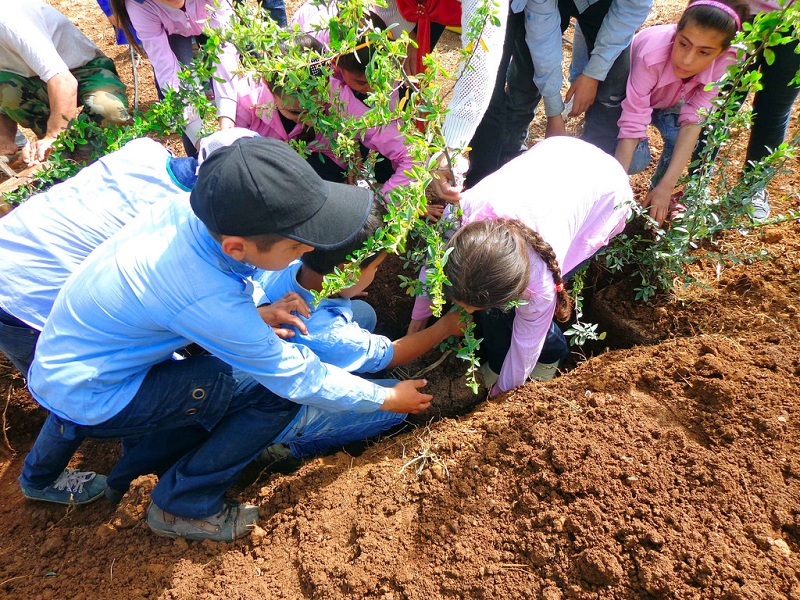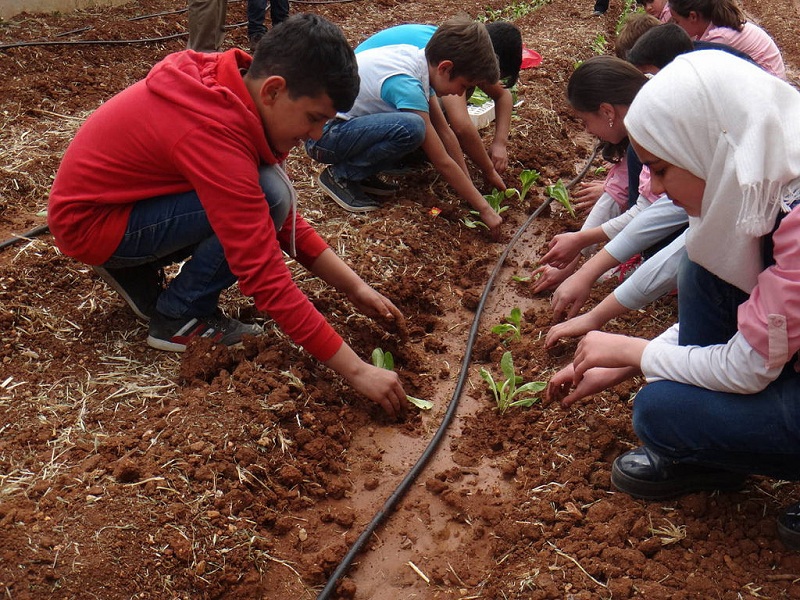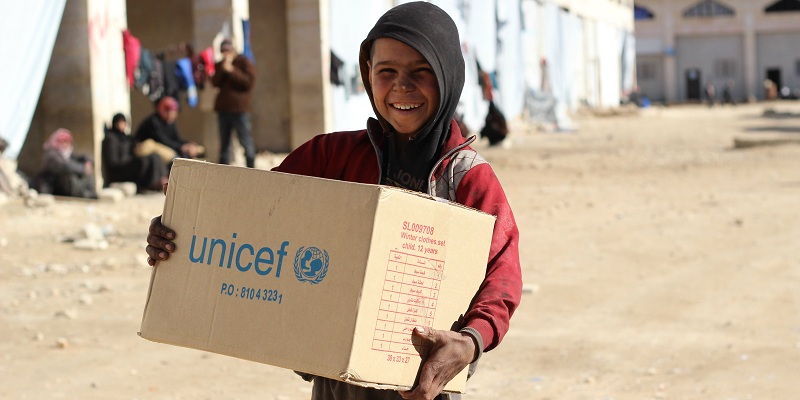By Kareem Sheta
When you hear a complete stranger’s baby or toddler crying, you will probably assume that he is hungry and feel sorry for the child until he is fed and satisfied within a matter of minutes. Now imagine that same baby except this time there is more than 6 million of them wailing in the background and their desperate hunger for food has to go unsatisfied for days, if not weeks on end, due to lack of nutrition. In 2015 out of the estimated 8.35 million children living in the Syrian Arab Republic, 5.3 million require humanitarian assistance, 1.2 million live in unreachable areas and 170,000 live in besieged areas according to UNICEF.

Through the partnership with the WFP’s school meals programme and UNICEF, the European Union-funded FAO school garden programme was launched in Syria where school gardens were introduced at the primary school level for the first time. According to the FAO, it promotes a whole school approach to food and nutrition education, in which classroom learning is linked with practical activities, reinforced by a nutrition- and health-friendly school environment that involves school personnel, families and the community. Moreover, the $6.5 million initiative is designed to strengthen the food security crisis in the conflict-torn nation.
Acting FAO Representative in Syria Adam Yao said, “The ongoing crisis in Syria is having a devastating effect on the health and nutrition of an entire generation of children, but through these school gardens, children are now learning about key concepts related to food and nutrition while they also have access to nutritious fruit and vegetables.”

Through the programme, 300 teachers were trained in 17 schools including the deteriorating cities of Aleppo, Hama, Homs, Idleb and Rural Damascus where more than 3,400 children got to learn about food and nutrition. “Each school developed a school garden of approximately 500 square meters, equipped with water tanks and a drip irrigation system. With support from FAO and a local NGO taking care of the day-to-day production, the school gardens have collectively produced approximately 12 tonnes of fruit and vegetables.”
“At school, they taught us about cabbages, peppers, tomatoes, eggplants, lettuce and a lot of other foods. They also taught us the food pyramid and all about vitamins and how we benefit from them,” said Bilasan, a fifth grader from Bahaa Eddin Sajer Primary School in Rural Damascus governorate. Furthermore, the project will soon be scaled up to a further 35 schools in Aleppo and Rural Damascus thanks to additional funding from the Japanese government.

Despite their tremendous and countless efforts, UNICEF stated that “The international community needs to step in and provide additional funding to make sure that this threat to the lives of hundreds of thousands of children is averted.”



